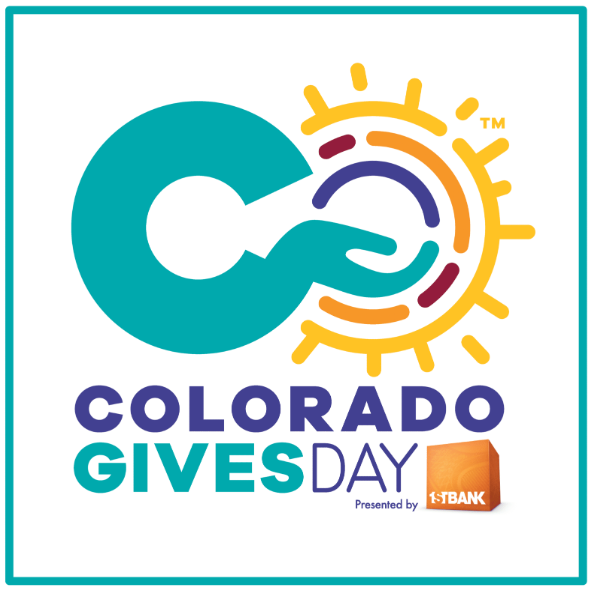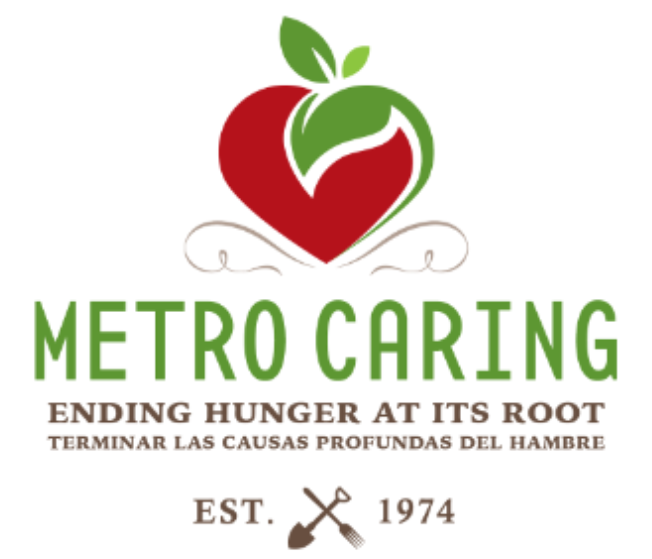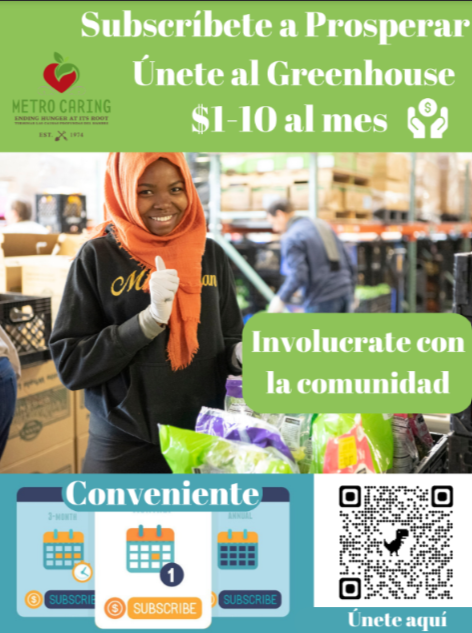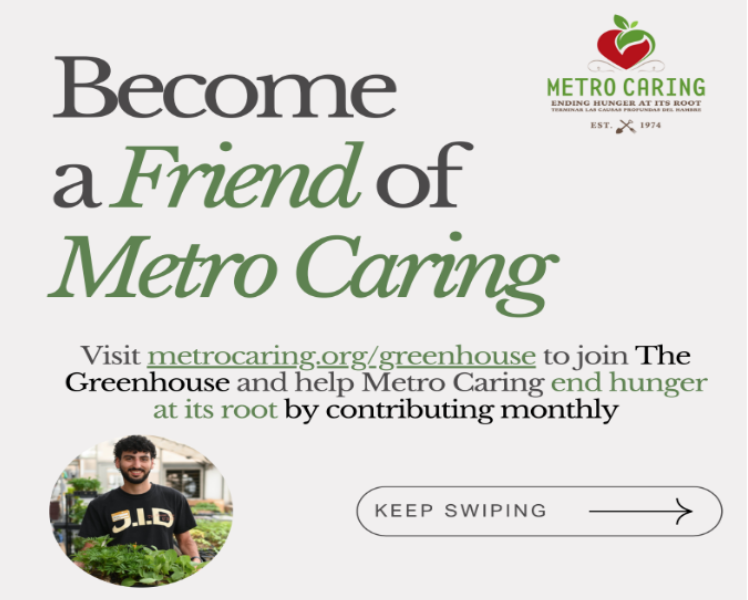Communication for Social Change
By: Youllee Kim, , Ph.D. | Assistant Professor, Department of Communication Studies
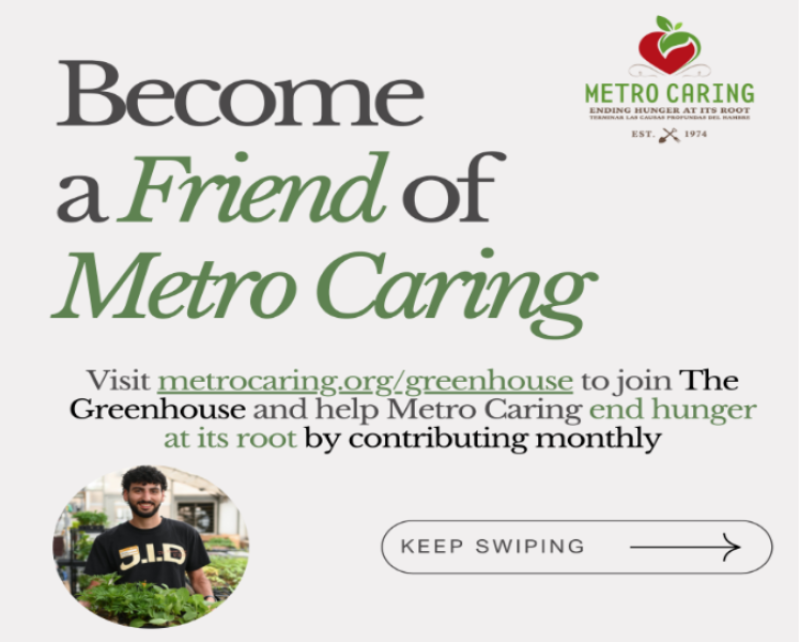
Communication for social change (COMM 3701) was designed to provide foundational knowledge and hands-on experience about how to design and develop a theory-driven, audience-relevant communication campaign. During Fall 2023 quarter, students in COMN 3701 worked with Metro Caring, an anti-hunger organization in Denver metro area, to design a fundraising message to be disseminated for the Colorado Gives Day campaign (For more information about Colorado Gives Day: https://www.coloradogives.org/p/about-us)
During the annual Colorado Gives Day, Metro Caring distributes multiple fundraising messages through different channels including email and various social media platforms (e.g., Twitter, Instagram, and Facebook). Throughout this quarter, Brandon McKinley, communications and marketing specialist at Metro Caring, worked with the students to help them understand the organization’s mission, their targeted audience, and the goals they have for this year’s Colorado Gives Day.
The course covered four different themes. During the first couple of weeks, the class sought to understand the issue of food insecurity. Students not only watched and discussed the documentary Food Inc. to have an in-depth understanding of the nation’s food industry but also welcomed Brandon as a guest speaker to learn more about food insecurity in Denver and the various programs the Metro Caring runs to address food insecurity within the community (For more information about Metro Caring: https://www.metrocaring.org)
“Before this class, I had a very surface-level understanding of food insecurity. I did not understand how widespread it was, or how difficult it was to come out of. This class showed me that food insecurity is not just a lack of food. It includes the nutritional value of that food and the ethical implications of how it is produced.”
“I had known about food insecurity and its relation to the social determinants of health, but never had I worked so closely with the topic until partnering with Metro Caring this quarter. This class helped me better understand what we can do to address food insecurity in relation to systemic issues, recognizing that the solution is not as simple as just giving food.”
Both the second (audience analysis) and third themes (theory-based message design) of the course related to designing communication campaign messages. The class discussed several fundamental research articles, learned about ethics of message design, and had an opportunity to volunteer at Metro Caring. Then, four different groups in class conducted their own audience analysis, which led to designing of the draft of fundraising messages.
“Although I had a general understanding of the importance of audience analysis, I really found it interesting and impactful to understand the scientific research and backing of the concept. I find this as an area that is important far beyond this class but in all types of messaging and careers we may find ourselves in. No message will be understood and effectively received and understood if it is directed at the wrong individual or party.”
“As we were able to make our own fundraising campaigns to actually be considered for use by Metro Caring, I learned a lot about the ethical principles involved. Staying away from bias and stereotyping was a very important principle of our assignment and I realized how easy it is to take part in both unconsciously. Being aware of one's own biases is universally applicable to community campaign efforts.”
“I have always enjoyed volunteering, so I was excited to have the opportunity to do so in this class. Experiencing Metro Caring firsthand reinforced my understanding of how valuable community engagement is.”
During the final weeks of the quarter, students engaged with the fourth theme of the course, evaluation. Brandon visited the class once again on a group presentation day to provide feedback for the fundraising messages students created. Each group also incorporated feedback from their target audience, classmates, and professor before they shared the final messages with Metro Caring.
Thanks to the funding and support from CCESL, students in COMN 3701 enjoyed opportunities to work with the community partner and apply what they have learned in the classroom to “the real world.” Several students shared valuable knowledge and insights they gained from working with the community partner.
“Working on our own message campaigns and learning about all the components that need to be considered has allowed me to learn the complexities behind these campaigns. Learning of SMART goals, audience analysis, communications effects, summative evaluations, and other methods have demonstrated to me that it is simply not an easy task. It is so important to be fully engaged with the community and their needs, but you also need to be able to evaluate your own wants as well as needs because then you know what the real goals for the message campaign are.
“I feel that I learn best and get the most value out of community-engaged classes like this one. For instance, I enjoyed learning about communication campaign research and fundraising fundamentals by implementing them into our own campaigns.Especially as someone from Colorado, it feels really meaningful when I can combine my education with authentic community engagement, going beyond theory in classroom discussion to real social change. I plan to continue supporting Metro Caring however I can and am thankful for this course introducing me to their incredible work.”
Example fundraising messages students created in this class:
